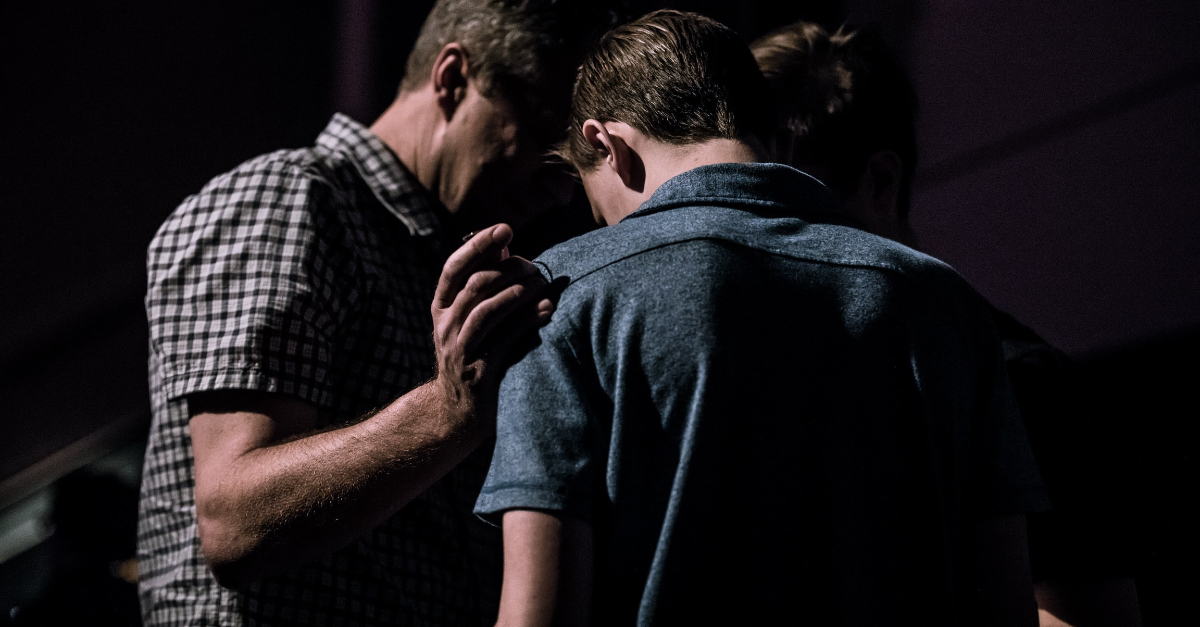
How ought we pray? This is a common question in the Christian life. This question, however, is not merely about how we live out our individual devotions, or in what structure we voice our personal needs before the Lord. Rather, the question of how we ought to pray must go deeper. We must look beyond our individual needs and consider how we go about praying for others.
The truth is, prayer—as it is depicted biblically—is firmly set within the bedrock of the community of faith. Our prayer lives are never meant to be only self-focused. To be a person of prayer is to be a person who also prays for others. Our prayer-lives will never develop in full depth if they remain strictly personal. We must take up the call of intercessory prayer.
So, how do we practice this important way of prayer? Is it as simple as merely rattling off a list of names from a prayer list? Or, is there something more involved?
Furthermore, how do we know if we are equipped for such intercessory prayer? These are important questions.
In response, here are three biblical realities to consider:
Photo Credit: ©GettyImages/Feverpitched
1. Intercessory Prayer Is Participation in the Prayer of the Church

Intercessory prayer, in its most popular sense, is often understood as simply “praying for another.” Whether this occurs through a defined prayer list, a prayer-chain ministry, or a more spontaneous utterance of someone on our heart or mind, the communal backdrop upon which these prayers hang is important to remember.
In Mark 2:1-5, several friends lower a crippled friend before Jesus. Our intercessions are the prayerful equivalent of this. It goes deeper than just the listing of names. At its heart, intercessory prayer is to prayerfully hold another before the face of Jesus.
Of note here, is that bringing another to Jesus in prayer is a communal activity, not just as a personal one. This Gospel story reveals the faithfulness of the crippled man’s friends, all acting together. Biblically, prayer is never a solitary activity. Through intercessory prayer, we join in the ongoing concert of prayer, prayed by the community of faith as it exists in its fullness throughout time and space.
The author of Hebrews reminds us, “we are surrounded by such a great crowd of witnesses” (Hebrews 12:1). Like cheering fans at a sporting event, the community of faith upholds us, intercedes for us. This means that when we intercede for another, holding another person before the Lord, we do so as part of the prayers already occurring for that individual, or that situation.
When we enter the practice of intercession, we lend our voice to the tapestry of intercession occurring before the Lord in the heavenly realms. Never, in our prayer lives, do we carve out a new path. Rather, we rest in, and are carried along by, the prayerful activity of the community.
This communal reality of prayer allows us to be bold in our intercessions. In recognizing that our intercessions are not dependent upon our ability or mastery, we free ourselves from the undue burden of performance.
If ever we feel ill-equipped, or unempowered in our prayer-life, we can rest upon the power and faithfulness of the Church. The prayers of the church bear us up, thus freeing us to join boldly in the activity of the saints. This is intercessory prayer at its best.
How beautiful it is to understand that the Spirit’s call to lift another before Jesus is not ours alone. It is but the call to participate in the continual, unbroken, activity of the Church.
Photo Credit: ©Getty Images Plus/tampatra
2. Intercessory Prayer Is Following the Prayer-Life of Jesus

As Christians, our lives are to be modeled on the life of Christ. We love as Jesus loved, serve as Jesus served. Therefore, it holds that we must also pray as Jesus himself prayed. This encourages intercessory prayer we see Jesus continually praying for others throughout Scripture. Take, for example, Jesus’ words to Simon Peter. Upon the announcement of his upcoming crucifixion, Jesus declares to Simon; "Simon, Simon, listen, Satan has demanded to sift all of you like wheat, but I have prayed for you that your own faith may not fail; and you, when once you have turned back, strengthen your brothers” (Luke 22:32).
Peter’s fireside denial obviously rings in the background of this passage. Yet the pre-knowledge of Peter's denial becomes an opportunity for Jesus to hold Peter in prayer. Jesus does not judge Peter, he prays for him. Jesus interceded on behalf of Peter's own faith before the throne of heaven. Jesus does the very same thing for all the disciples, and those who will believe through the disciples’ ministry, in the High Priestly Prayer of John 17.
The intercessory prayer of Jesus, however, goes one step further. By his function as Great High Priest, the author of Hebrews tells us that Christ lives to make intercession for us. In fact, the language is quite striking. As opposed to former temple priests, who were prevented by death from continuing in office, Jesus holds his priesthood permanently (Hebrews 7:24). This permanent priestly role is depicted as one of constant prayer.
The author of Hebrews writes, “Consequently, he is able for all time to save those who approach God through him, since he always lives to make intercession for them” (Hebrews 7:25). Sit with this biblical truth: Jesus, seated on the throne of heaven, is constantly praying for us!
This reality becomes the fuel for our own intercessory prayers.
If intercession is the very activity in which our Lord spends eternity, is it not then incumbent upon us to follow his model and give ourselves to intercession as well?
Christ’s intercessions for us should cause us to comb through the people in our lives, seeking those situations where we may be called to embody Christlike prayer. Ultimately, intercessory prayer is a manifestation of Christlike love. Just as Christ’s love for us involved the pouring out of his spirit in prayer, Christ’s love flowing through us should call us to the same prayerful outpouring.
Photo Credit: ©Unsplash/Jack Sharp
3. Intercessory Prayer Occurs in Cooperation with the Holy Spirit

When thinking of prayer, we often become overly concerned with our own ability. The finesse of our words, the eloquence of speech, and the duration of our petitions, can easily hold too much of our focus.
Effective prayers, it can be mistakenly thought, involve perfect execution of outward manifestations. This is not the case. Paul comments on the too-often human stumbling of our prayer lives, stating that sometimes we do not know how we ought to pray. His statements here are not a criticism or a judgment; rather they are a description of a human situation in which we all share.
As we long for the full realization of God’s kingdom, we may go through periods wherein we struggle at prayer. Happily, Paul says, such struggles are not actually a barrier to prayer, for, in those times, the Spirit intercedes for us (Romans 8:26-27).
Our inability is met by the Spirit’s ability. Intercessory prayer occurs in cooperation with the Holy Spirit.
Prayer is a movement of our spirit, done in response to the Spirit of Christ within us. Intercessions ought to be offered as the Spirit nudges us to uphold certain individuals, or certain situations before the Lord. These promptings may lead us to certain outward petitions or they may move us more towards inward groanings.
In either case, the Holy Spirit provides the power for the very intercessory prayer the Spirit has inspired. That which the Spirit calls us to, the Spirit empowers us for.
Photo Credit: ©GettyImages/undefined undefined
“Being Equipped” Makes No Sense

When we build our prayer lives upon these three biblical realities, we begin to see that any concern that we are “not equipped” for intercessory prayer makes very little sense.
After all, to see our intercessions as participating in the prayers of the wider church means that our ability in prayer is never an issue. We are never alone in our intercessions; we are upheld and supported by the dynamic community of faith.
Similarly, it makes no sense to question whether we are equipped for intercessory prayer if we truly believe that the Spirit enters the moments of inarticulation or stumbling. If the Holy Spirit takes up our groanings when we know not what to pray, then our ability to speak eloquently has little to do with the power of our intercessory prayers.
Questioning our equipping for prayer does nothing but distract us from our calling.
So, instead of questioning whether we are duly equipped for intercessory prayer, let us dare to believe that our intercessions will be powerful and effective. Let us cast off all our fears and anxieties relating to prayer-performance, and boldly participate in the Spirit’s groanings.
As we strive to live Christlike lives, empowered by the Holy Spirit, and upheld by the holy Church, let us remove all obstacles and fervently place others before the face of Jesus. That is our calling.
Photo Credit: ©GettyImages/Simon Lehmann